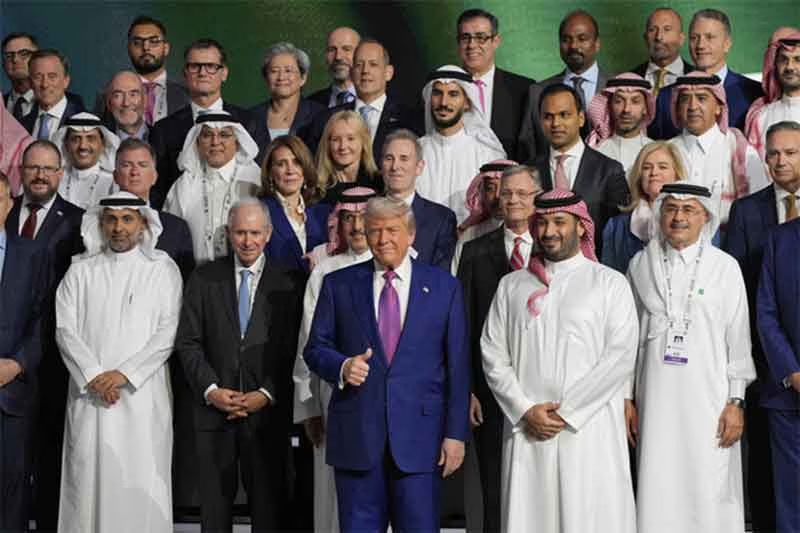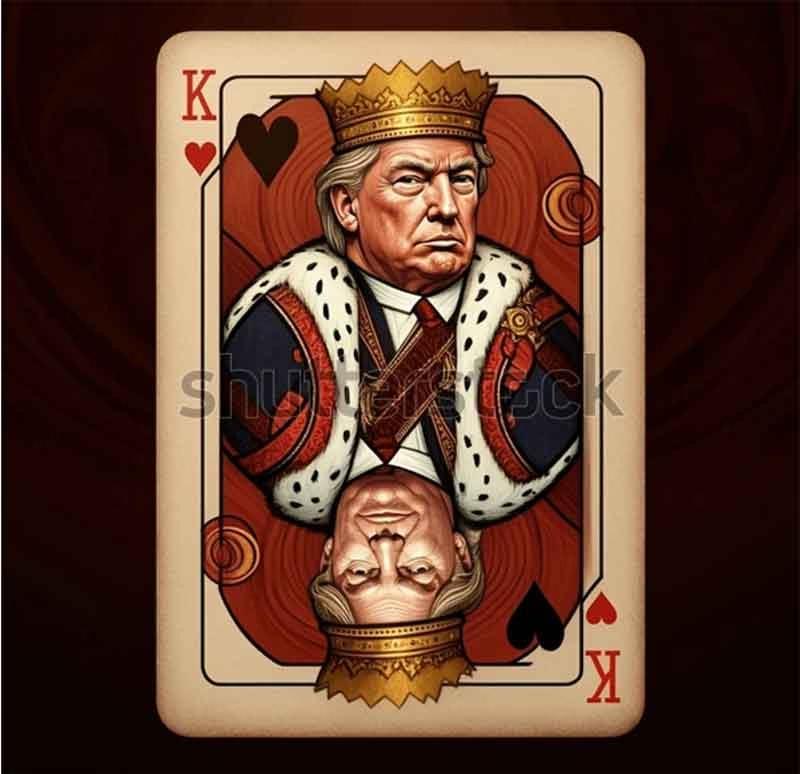
There’s a peculiar kind of irony that history seems to favor—where former reality TV stars turned presidents, banished by democratic verdicts and haunted by indictments, find redemption not in courts or the public square, but beneath the chandeliers of gilded palaces in the Middle East. Of all the places on Earth, the only venue where Donald J. Trump might be greeted with thunderous applause today is Saudi Arabia. Not Iowa. Not Brussels. Not Lagos or London or Lahore. Riyadh.
In a world that has largely moved on—or at least tried to—Trump remains a spectacle, albeit one with fewer takers. Across the global North, from Berlin to Ottawa, he’s remembered less for policy than for petulance: tariffs that sparked trade wars, a COVID response that felt like medical malpractice, and an affection for strongmen that gave autocrats more bromance than scrutiny. Meanwhile, in the global South, memories of Trump are even less charitable. His administration’s open disdain for much of the non-Western world—infamously encapsulated in his description of nations as “shithole countries”—was not just diplomatically offensive, it was ideologically clarifying. Trumpism, in many respects, was a worldview in which whiteness was geopolitical destiny.
And yet, amid the diplomatic carnage and social division, Trump has always possessed an uncanny instinct for spectacle. He knows, perhaps better than most modern politicians, that image often triumphs over substance. Which is why, even as he finds himself embattled at home—legally, politically, and morally—he continues to court adoration abroad, particularly in places where applause can be purchased, choreographed, or inherited.
Enter Saudi Arabia: a kingdom that merges the medieval with the ultra-modern, where fealty to monarchs is absolute and dissent is dealt with in bone saws. Here, Trump doesn’t need to explain away Charlottesville, defend January 6th, or be asked inconvenient questions about classified documents in his Florida bathroom. Instead, he can bask in the warm glow of petro-dollar pageantry, surrounded by billionaire sheikhs and princely autocrats who see in him a kindred spirit—not despite his authoritarian leanings, but because of them.
For Trump, there is poetic symmetry in being adored by men who rule without elections, legislate without parliaments, and imprison without trials. These are not just allies; they are the fantasy he always had for America: unaccountable power, unquestioned loyalty, and a press corps too terrified—or too murdered—to ask follow-up questions. And for the royals of Riyadh and Abu Dhabi, Trump offers something in return. Not just arms deals and diplomatic cover, but validation from the most boisterous symbol of American power in recent memory. In Trump, they do not see a washed-up politician; they see a mirror.
Let’s be clear: the billionaire sheikhs, kings, and princes of the Gulf are not naïve. They are among the most calculating actors on the world stage. Their embrace of Trump isn’t driven by admiration for his grasp of policy—he famously struggled to pronounce their names, let alone understand their histories—but by the strategic utility of a man who understands that governance is, above all, a performance. And in the transactional logic of both Trump and the Gulf elite, this is a match made in heaven—if heaven came with a helipad and gold-plated bidets.
This mutual affection, of course, reveals a broader and more unsettling truth about our age: the global rise of performative authoritarianism. Trump’s resonance with regimes that have little interest in democracy isn’t accidental. It speaks to the growing market for politics devoid of moral restraint and democratic accountability, where the only currencies that matter are power and performance. And in this marketplace, truth is negotiable, but loyalty is not.
There’s a temptation to dismiss Trump’s foreign fan base as a footnote to his domestic decline. That would be a mistake. Because the optics of Trump being fêted by monarchs while facing trial in Manhattan is not just ironic—it’s instructive. It tells us something profound about the nature of modern tyranny: that in the absence of democratic legitimacy, applause can be outsourced. And that sometimes, the most raucous cheers for a failed demagogue come not from his own people, but from the gilded echo chambers of petro-kingdoms who see in him a model, not a warning.
In the end, Trump’s thunderous welcome in Riyadh isn’t a comeback. It’s a clarifying moment. It reveals not just where he stands in the world, but who stands with him—and why. He may have lost the White House in 2020, but in 2024, he reclaimed it. Yet, in Saudi Arabia, none of that matters. There, he doesn’t need voters. He has vassals.
And perhaps that’s the saddest irony of all: that the man who once promised to make America great again is now celebrated most fervently in places where democracy never stood a chance.
Subscribe to Our Newsletter
Get the latest CounterCurrents updates delivered straight to your inbox.
Prof. Junaid S. Ahmad teaches Law, Religion, and Global Politics and is the Director of the Center for the Study of Islam and Decolonization (CSID), Islamabad, Pakistan. He is a member of the International Movement for a Just World (JUST – https://just-international.org/), Movement for Liberation from Nakba (MLN – https://nakbaliberation.com/), and Saving Humanity and Planet Earth (SHAPE – https://www.theshapeproject.com/).














































